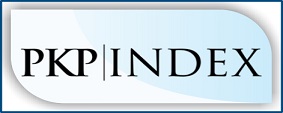Remediasi melalui Pendekatan Holistik untuk Meningkatkan Pemahaman Siswa tentang Ekspresi Aljabar dengan Berbantuan Teman Sebaya
Abstract
Berdasarkan data hasil uji coba di lapangan, ternyata masih banyak siswa yang terindikasi mengalami miskonsepsi hingga kesulitan pada sub materi ekspresi aljabar. Oleh karena itu, penelitian ini bertujuan untuk mengidentifikasi miskonsepsi dan kesulitan siswa dalam memahami ekspresi aljabar serta mengevaluasi efektivitas pendekatan holistik dalam remediasi yang berbantuan teman sebaya. Pretest dilakukan kepada 32 siswa. dari 32 siswa, diambil 7 siswa sebagai subjek penelitian yang dianalisis berdasarkan jawaban pretest. Metode penelitian yang digunakan adalah PTP (Penelitian Tindakan Pedagogik). Hasil pretest menunjukkan bahwa mayoritas siswa mengalami miskonsepsi dan kesulitan dalam menyelesaikan soal berbentuk cerita. Setelah dilakukan remediasi dengan pendekatan holistik yang melibatkan tutor teman sebaya, hasil posttest menunjukkan adanya peningkatan dalam pemahaman siswa hingga memperoleh hasil yang lebih baik. Hasilnya menunjukkan bahwa dari 5 soal, miskonsepsi dan kesulitan dapat diperbaiki pada soal 1, 3, 4, dan 5, Adapun pada pemahaman konseptual di soal 2, masih perlu ditingkatkan kembali. Remediasi ini tidak hanya memperbaiki kesalahan konsep, tetapi juga meningkatkan keaktifan serta semangat siswa ketika proses pembelajaran. Oleh karena itu, pendekatan holistik berbantuan teman sebaya efektif dalam meningkatkan pemahaman siswa terhadap ekspresi aljabar, serta mendorong keterlibatan sosial di dalam kelas.
Downloads
References
Anthony, A. L. W., Yusmin, E., & Riyanti, S. (2015). Meta-Analisis Efektivitas Remediasi Terhadap Hasil Belajar Matematika Siswa. Jurnal Pendidikan Dan Pembelajaran, 4(9), 1–11.
Aydin-Guc, F., & Aygun, D. (2021). Errors and misconceptions of eighth-grade students regarding operations with algebraic expressions. International Online Journal of Education and Teaching (IOJET), 2021(2), 2148–2225. https://orcid.org/0000-0002-3922-017X
Borke, M. (2021). Student teachers’ knowledge of students’ difficulties with the concept of function. Lumat, 9(1), 670–695. https://doi.org/10.31129/LUMAT.9.1.1661
Dubinsky, E., & McDonald, M. A. (2001). APOS: A contructivist theory of learning in undergraduate mathematics education research. In Research in Collegiate Mathematics Education, III, 275–282.
Edo, S. I., & Tasik, W. F. (2022). Investigation of Students’ Algebraic Conceptual Understanding and the Ability to Solve PISA-Like Mathematics Problems in a Modeling Task. Mathematics Teaching-Research Journal, 14(2), 44–60.
Eren, E. (2021). European Journal of Educational Research. European Journal of Educational Research, 10(3), 1199–1213. https://www.researchgate.net/profile/Ebru-
Eren/publication/348382981_Education_Policies_in_the_Context_of_Political_Communication_in_Turkey/links/5ffc2aeba6fdccdcb846cc03/Education-Policies-in-the-Context-of-Political-Communication-in-Turkey.pdf
Erofeeva, M. A., Rueva, E. O., Aryamov, A. A., Bodaevsky, V. P., Novikova, T. Y., Rudenko, A. V., &
Filippov, M. N. (2020). Destructive Behavior of a Person in Historical Retrospective: Factors, Diagnosis and Prevention. Propósitos y Representaciones, 8(3). https://doi.org/10.20511/pyr2020.v8n3.583
Fitria, A., Subanji, Susiswo, & Susanto, H. (2023). Cognitive Map: Diagnosing and Exploring Students’ Misconceptions in Algebra. Mathematics Teaching-Research Journal, 15(5), 49–75.
Hershkowitz, R., & Schwarz, B. B. (1999). Reflective processes in a mathematics classroom with a rich learning environment. Cognition and Instruction, 17(1), 65–92.
Jacobs, L., & Morita, M. (2019). Integrating cognitive, affective, and psychomotor domains in mathematics education: A holistic approach. International Journal of Educational Research, 98, 35-48. https://doi.org/10.1016/j.ijer.2019.06.010
Johnson, D. W., & Johnson, R. T. (2009). An educational psychology success story: Social interdependence theory and cooperative learning. Educational Psychologist, 44(2), 100-109. https://doi.org/10.1080/00461520902830929
Kaput, J. J. (1987). Toward a theory of symbol use in mathematics. In Symbolizing and Communicating in Mathematics Classroomss, 237–290.
Kemmis, S., & McTaggart, R. (2005). Participatory Action Research: Communicative Action and the Public Sphere. In The Sage Handbook of Qualitative Research (In. N. K., pp. 559–603). Sage Publications Ltd.
Leinhardt, G., Zaslavsky, O., & Stein, M. K. (1990). Functions, graphs, and graphing: Tasks, learning, and teaching. Review of Educational Research, 60(1), 1–64.
Lestari, D. E., & Suryadi, D. (2020). Analisis Kesulitan Operasi Hitung Bentuk Aljabar. JURING (Journal for Research in Mathematics Learning), 3(3), 247. https://doi.org/10.24014/juring.v3i3.9737
Özdemir, E., & Babadogan, M. C. (2023). Teacher Candidates’ Training Needs for Social-Emotional Competencies. International Journal of Curriculum and Instructional Studies, 13(1), 95–122. https://doi.org/10.31704/ijocis.2023.005
Papadopoulou, M., Argyri, P., & Smyrnaiou, Z. (2020). Modeling in Mathematics and History as Teaching and Learning Approaches to Pandemics. International Society for Technology, Education, and Science, 99–103.
Roscoe, R. D., & Chi, M. T. H. (2007). Understanding tutor learning: Knowledge-building and knowledge-telling in peer tutors' explanations. Instructional Science, 35(4), 321-351. https://doi.org/10.1007/s11251-006-9012-2
Saaroh, F., Abdul Aziz, T., & Antari Wijayanti, D. (2021). Analysis of Students’ Misconceptions on Solving Algebraic Contextual Problem. Risenologi, 6(1), 19–30. https://doi.org/10.47028/j.risenologi.2021.61.165
Töman, U., & Gökburun, Ö. (2022). What Was and Is Algebraic Thinking Skills at Different Education Levels? World Journal of Education, 12(4), 8. https://doi.org/10.5430/wje.v12n4p8
Topping, K. J. (2005). Trends in peer tutoring. Educational Psychology, 25(6), 631-645. https://doi.org/10.1080/01443410500345172
Tuaputty, H., Alimudi, S., Irene, I., Latuperissa, L. N., & Donkor, A. K. (2023). Project-based learning using a laboratory approach on learning outcomes and critical thinking in marine biology. JPBI (Jurnal Pendidikan Biologi Indonesia), 9(1), 103–114. https://doi.org/10.22219/jpbi.v9i1.24551
Vosniadou, S. (2008). International handbook of research on conceptual change Routledge.
Wettergren, S. (2022). Identifying and promoting young students’ early algebraic thinking. Lumat, 10(2), 190–214. https://doi.org/10.31129/LUMAT.10.2.1617
Copyright (c) 2025 Yulita Yulita, Sugiatno Sugiatno

This work is licensed under a Creative Commons Attribution-ShareAlike 4.0 International License.



1.jpg)














